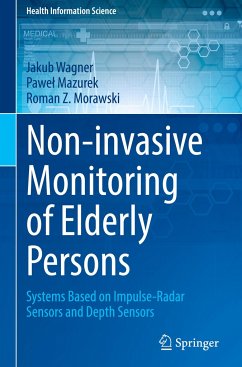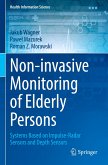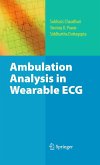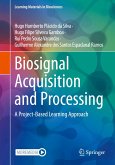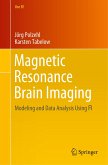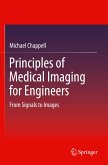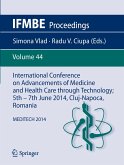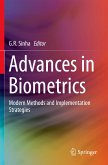This book covers the results of a study concerning systems for healthcare-oriented monitoring of elderly persons. It is focused on the methods for processing data from impulse-radar sensors and depth sensors, aimed at localisation of monitored persons and estimation of selected quantities informative from the healthcare point of view. It includes mathematical descriptions of the considered methods, as well as the corresponding algorithms and the results of their testing in a real-world context. Moreover, it explains the motivations for developing healthcare-oriented monitoring systems and specifies the real-world needs which may be addressed by such systems.
The healthcare systems, all over the world, are confronted with challenges implied by the ageing of population and the lack of adequate recruitment of healthcare professionals. Those challenges can be met by developing new technologies aimed at improving the quality of life of elderly people and at increasing the efficiency of public health management. Monitoring systems may contribute to this strategy by providing information on the evolving health status of independently-living elderly persons, enabling healthcare personnel to quickly react to dangerous events. Although these facts are generally acknowledged, such systems are not yet being commonly used in healthcare facilities and households. This may be explained by the difficulties related to the development of technological solutions which can be both acceptable for monitored persons and capable of providing healthcare personnel with useful information. The impulse-radar sensors and depth sensors, considered in this book, have a potential for overcoming those difficulties since they are not cumbersome for the monitored persons - if compared to wearable sensors - and do not violate the monitored person's privacy - if compared to video cameras.
Since for safety reasons the level of power, emitted by the radar sensors, must be ultra-low, thetask of detection and processing of signals is a research challenge which requires more sophisticated methods than those developed for other radar applications. This book contains descriptions of new Bayesian methods, applicable for the localisation of persons by means of impulse-radar sensors, and an exhaustive review of previously published ones. Furthermore, the methods for denoising, regularised numerical differentiation and fusion of data from impulse-radar sensors and depth sensors are systematically reviewed in this book. On top of that, the results of experiments aimed at comparing the performance of various data-processing methods, which may serve as guidelines for related future projects, are presented.
The healthcare systems, all over the world, are confronted with challenges implied by the ageing of population and the lack of adequate recruitment of healthcare professionals. Those challenges can be met by developing new technologies aimed at improving the quality of life of elderly people and at increasing the efficiency of public health management. Monitoring systems may contribute to this strategy by providing information on the evolving health status of independently-living elderly persons, enabling healthcare personnel to quickly react to dangerous events. Although these facts are generally acknowledged, such systems are not yet being commonly used in healthcare facilities and households. This may be explained by the difficulties related to the development of technological solutions which can be both acceptable for monitored persons and capable of providing healthcare personnel with useful information. The impulse-radar sensors and depth sensors, considered in this book, have a potential for overcoming those difficulties since they are not cumbersome for the monitored persons - if compared to wearable sensors - and do not violate the monitored person's privacy - if compared to video cameras.
Since for safety reasons the level of power, emitted by the radar sensors, must be ultra-low, thetask of detection and processing of signals is a research challenge which requires more sophisticated methods than those developed for other radar applications. This book contains descriptions of new Bayesian methods, applicable for the localisation of persons by means of impulse-radar sensors, and an exhaustive review of previously published ones. Furthermore, the methods for denoising, regularised numerical differentiation and fusion of data from impulse-radar sensors and depth sensors are systematically reviewed in this book. On top of that, the results of experiments aimed at comparing the performance of various data-processing methods, which may serve as guidelines for related future projects, are presented.

